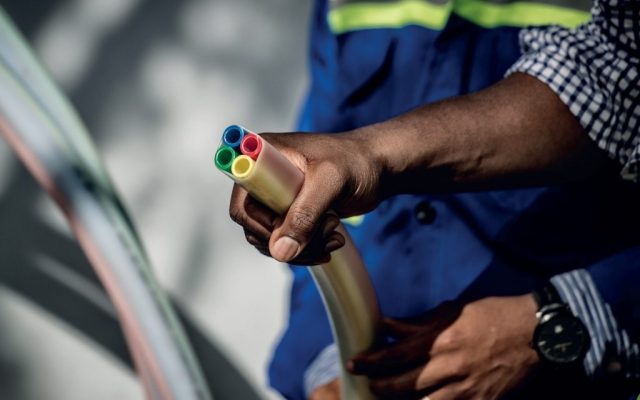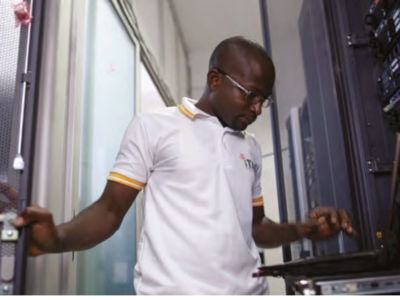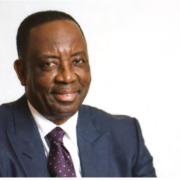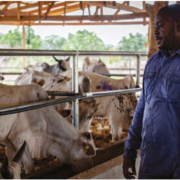Ghana’s digital transformation has been key to developing an all-inclusive financial system through an innovative use of information communication technology (ICT) to bring mobile money, micro-credit loans and other digital services to a previously excluded rural population.
Ghana has become the fastest-growing mobile money market, according to the World Bank’s 4th Ghana Economic Update published in June 2019, due to the expansion of the agent distribution network from 6,000 in 2012 to 150,000 in 2017 and due to the government’s commitment to promoting innovation with the ICT for Accelerated Development (ICT4AD) policy. ICT4AD aims to boost social and economic development through ICT.
Ghana was one of the first countries to liberalise basic telecommunications services in 1994, opening the way for competition and growth in the sector. The country “provides a unique case of governmental commitment to creating a suitable working environment for innovation,” according to a 2019 report from Agence Française de Développement (AFD).
Early infrastructure investments resulted in approximately 7.16 terabytes of bandwidth capacity available, according to the Ghana Investment Promotion Centre (GIPC).
Mobile phone penetration stood at 138%, with 41 million lines, in May 2019 and competition is fierce between the six mobile operators as the market continues to grow aggressively.
Ghana has four broadband wireless access licencees and 52 authorised Internet Service Providers providing data services in the market, according to the National Communications Authority. Subscriptions for 4G Data were above 1 million at the end of December 2018. Subscriptions for 2G/3G mobile data stood at over 26 million, with a penetration rate of 88%.
Broad internet access fosters thecreation of online services
The spread of internet access allows for the creation of new services. Digital savings accounts users started earning interest, with total interest paid to holders of electronic money wallets amounting to GHC24.8 million (US$4.5 million) in 2016, according to AFD’s report.
The government launched its interoperable system in May 2018, making transactions possible between all mobile service providers, in a bid to reduce transaction costs and promote all-inclusive financial growth.
Ghana has introduced the National Switch and smart card payment system, known as e-zwich, which uses biometric technology and allows for on-line and off-line transactions at all banks and retail outlets. The next step towards sustainable change should involve digitising tax and utility payments, according to AFD.
Ghana’s National Health Insurance Authority (NHIA) has created a platform for Ghanaians to renew their membership every year via their mobile phones, instead of queuing up at their local NHIA office for a whole day. The initiative was supported by AFD, the International Labour Organisation and the Impact Insurance Facility and should increase the number of renewals registered every year, as outlined in the AFD 2019 report.
GHANA HAS BECOME THE FASTEST-GROWING MOBILE MONEY MARKET, PARTLY DUE TO THE GOVERNMENT’S COMMITMENT TO PROMOTING INNOVATION, WITH ITS ICT FOR ACCELERATED DEVELOPMENT (ICT4AD) POLICY.
To promote electronic money transactions, Ghana Interbank Payment and Settlement Systems (GhIPSS) has set up an e-commerce window which is scheduled to soon become operational.
Supporting emerging technologies
The Ministry of Communication is facilitating the establishment of science and technology parks in the country. The Accra Digital Centre has been constructed and the ICT Technology Park at Dawa, in the Greater Accra Region, should be completed by the end of 2019. The ministry has secured funds to extend the programme to other regions and construction has started in Cape Coast in the Central Region.
Investment opportunities
There are considerable investment opportunities in the ICT sector. Ghana needs service providers to connect international voice calls to the local public network, Internet Service Providers to offer cheaper internet access to the public, especially in rural areas, and broadcasting operators to establish radio and television broadcasting in the country.

The country needs more ICT facilities and infrastructure on a broad scale across the nation. Investments are needed in the provision of software for the country, extension of the broadband network to reach the whole country and to provide computer access to rural students.
MOBILE PHONE PENETRATION STOOD AT 138%, WITH 41 MILLION LINES, IN MAY 2019.
Ghana seeks technological and other support-related services such as the supplyof quality telecommunications equipment, ICT equipment and office and network equipment.
There are also opportunities in the following areas:
- Education in software development, networking, VSAT, telecommunication and IT engineering
- Production of business solutions (software and networking services)
- Business Processing Outsourcing
- Supply of high-tech telecommunication equipment
- Back office operations (especially for the financial institutions)
- Provision of broadband facilities and services
- Internet service provision
- Transaction processing
- Manufacturing, assembling and supply of computers and accessories
- VSAT services
- E-commerce and legal database services
- Logistics management services and medical transcription services














Comments